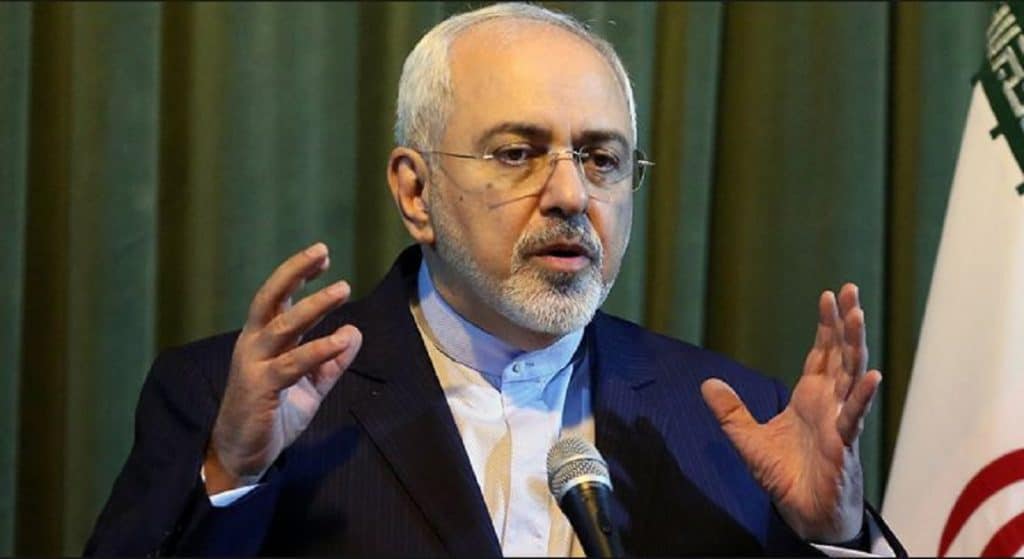By Prof. Engr. Zamir Ahmed Awan
Iran is justified in demanding compensation for the damages caused to Iran due to President Trump’s unilateral withdrawal from JCPOA in 2018 and imposing the sanction of Iran. Around 800 sanctions on all levels of the economy led to a loss of $1 trillion.

The general public in Iran is suffering due to sanctions. Even the imports of life-saving drugs and food were banned. The worst impact was due to the export of Iranian oil and gas, a significant source of foreign exchange earnings to meet the countries’ needs. The sanctions damaged Iran’s oil-dominated economy. Although other nations, who were dependant on imports of oil and gas from Iran, also suffered, but imports from other Gulf states have compensated them.
The Joint Comprehensive Plan of Action (JCPOA) agreement was reached with Iran and the P5+1 (China, France, Germany, Russia, the United Kingdom, and the United States) on July 14, 2015. The nuclear treaty was validated by U.N. Security Council Resolution 2231, approved on July 20, 2015. Iran’s compliance with the nuclear-related provisions of the JCPOA will be verified by the International Atomic Energy Agency (IAEA) according to specific requirements outlined in the agreement. And in return, sanctions have to be removed from Iran.
The JCPOA was implemented smoothly up to all stakeholders’ satisfaction till May 8, 2018, when President Trump declared that the United States would withdraw unilaterally from the JCPOA and reinstated U.S. nuclear sanctions on Iran. However, all other stakeholders and IAEA believed that Iran is implementing the deal with real spirit, and withdrawal of the U.S. was not justified.
History is full of examples where compensations paid by aggressors to victims, like; Rome imposed huge indemnities on Carthage after the First (Treaty of Lutatius) and Second Punic Wars. Some war compensations induced changes in financial policy. For example, the French payment following the Franco-Prussian war played a significant role in Germany’s decision to accept the gold standard; the 230 million silver taels in reimbursements imposed on defeated China after the First Sino-Japanese War led Japan to a alike decision. In Europe, the Napoleonic War, Franco-Prussian War, Greco-Turkish War of 1897, World War I, and World War II, all ended with war reparations. Germany and Japan are still paying reparations.
After the Gulf War, Iraq putative United Nations Security Council Resolution 687, which declared Iraq’s financial liability for damage caused by its invasion of Kuwait. The United Nations Compensation Commission (UNCC) was established, and US$350 billion in claims were filed by governments, corporations, and individuals. UNCC entertained and awarded compensations claims for $52.4 billion to approximately 1.5 million successful petitioners; as of July 2019, $48.7 billion has been paid. Only $3.7 billion was left to be paid to Kuwait on behalf of the Kuwait Petroleum Corporation. The UNCC says that its prioritization of claims by natural people, onward of lawsuits by governments and individuals bodies or corporations (legal persons), “marked a significant step in the evolution of international claims practice.” These costs were to come from a 30% share of Iraq’s oil revenues from the oil for food program.
There have been efforts to codify reparations both in the Statutes of the International Criminal Court and the U.N. Basic Principles on the Right to a Remedy and Reparation for Victims, and some scholars have debated that individuals should have a right to seek compensation for wrongs they sustained during warfare through tort law.
Keeping in view the past practices and on-ground sufferings of Iranians, it is justified that Iran should be compensated for all damages caused due to irrational sanctions imposed on them. On the other hand, sanctions were imposed on various nations but never produced the desired results. Sanctions always enhanced the sufferings of the general public only. It is proved that sanctions were counter productive. The same is valid in the case of Iran; sanctions might be counterproductive and forces Iran to think about other options.
Foreign Minister Javad Zarif said on Sunday that any follow-up negotiations to salvage the 2015 nuclear deal must include “compensation” for such lasting economic damage. “When we meet, we will raise compensation, Whether those compensations will take the form of reparation, or whether they take the form of investment, or whether they take the form of measures to prevent a repeat of what Trump did.”
Availing this opportunity, I would like to draw the International community attention also about Afghanistan, a country suffering wars, invasions, and occupation of foreign troops for almost four decades. The country is severely damaged, infrastructure, hospitals, schools, industries, agriculture, etc.; almost everything has been destroyed. Millions of innocent civilians were killed or injured. Millions of houses damaged, leading toward making millions of people homeless. They have forced millions of Afghans to flee to neighboring countries and take refuge. In addition to tangible losses, there exist significant intangible losses.
Afghanistan needs billions of dollars to reconstruct, but could not afford it. It is time to proactively reach out and extend financial and technical assistance, reparations to rebuild Afghanistan.
Author: Prof. Engr. Zamir Ahmed Awan, Sinologist (ex-Diplomat), Editor, Analyst, Non-Resident Fellow of CCG (Center for China and Globalization), National University of Sciences and Technology (NUST), Islamabad, Pakistan.
(The views expressed in this article belong only to the author and do not necessarily reflect the editorial policy or views of World Geostrategic Insights).







